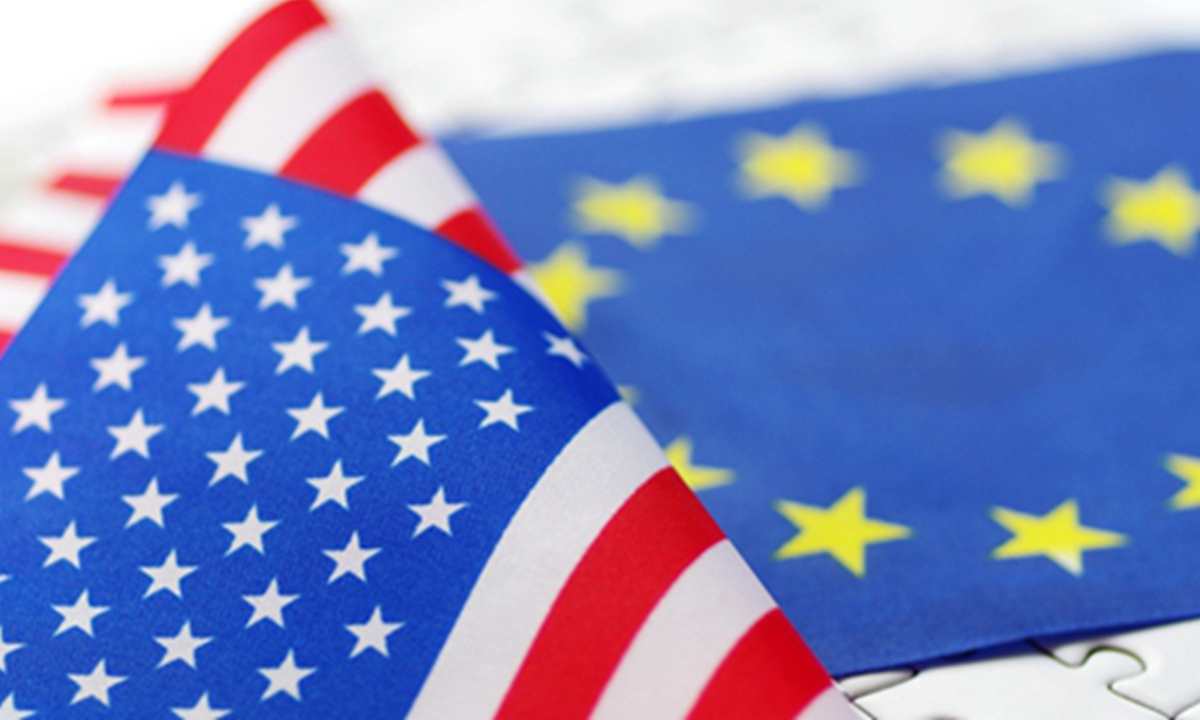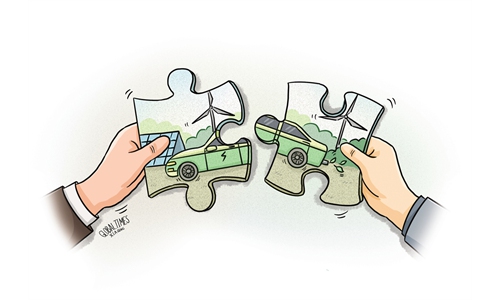
Photo: IC
EU foreign policy chief Joseph Borrell concluded his long-expected visit to China. He assured that the EU takes China seriously and asked Chinese interlocutors not to look at the EU through the lens of its relations with other countries.
What is noteworthy is the summit between the EU and the US to be held in Washington DC on October 20. The two sides claim that they will advance their strong cooperation. Clean energy and critical technologies are on the agenda.
In recent years, the EU and the US have strengthened trade and technological cooperation through the Trade and Technology Council (TTC). Their collaboration in specific areas such as Information and Communications Technology (ICTs), AI and clean energy has limited China's access to advanced technologies and markets. The EU has also identified a list of critical technology areas for its economic security, including advanced semiconductors, AI, quantum and biotechnology. China has enough reason to believe that it is being targeted, bearing in mind the ban on Huawei and the restriction on exports to China by ASML, a leading manufacturer of chip-making machines of the Netherlands.
According to the EU leaders, every decision is made in the best interests of the EU, rather than under the influence of any other country. However, the EU's moves will not bring technological edge but huge losses. Banning Chinese 5G technology and restricting exports of semiconductor equipment have led to sky-high cost and loss of market shares. Huawei's latest Mate 60 model has proven that innovation will not stop at anything.
In just one month, the EU launched an anti-subsidy probe into Chinese electric vehicles and is reportedly considering investigations into Chinese wind power equipment and steel. The steel investigation is expected to be announced during the EU-US summit in return for avoiding re-imposition of tariffs on the EU's steel and aluminum started by Donald Trump in 2018. In what way does protectionism and trade fragmentation serve the interests of the EU, a champion of free trade and multilateralism?
Facing the Inflation Reduction Act (IRA) adopted by the Biden administration, a product of pure protectionism, the EU tries to talk its way out of the IRA's impact instead of taking countermeasures. In doing so, the EU invites suspicion about double standards and runs the risk of tarnishing its reputation on the global stage.
While eloquently encouraging other parties to raise the level of ambition of climate action for the future of humanity, the EU has turned its gun on China, a country committed to a green transition and eager to contribute to the global efforts with quality products. This marks a departure from the EU's purpose and will in the long term undermine the sustainability of global supply chains and the decarbonization process.
If it is indeed true that the EU makes its decisions in its own best interests, there is only one way to interpret this: The EU believes that following the US is needed to serve its own interests. Some would argue that the EU has no other choice as it relies on the US for security, especially with the Ukraine conflict going on.
The truth is, by overstretching the concept of security and ideology, the US is using the conflict to stoke bloc confrontation and gain further control over its European allies. The US arms, grain and energy traders are turning the conflict into a gold mine by making price-soaring deals. However, the EU is bearing all the consequences and falling deeper into one-sided dependence.
With Poland first claiming to stop supplying weapons to Ukraine, more NATO members have started to reconsider their choice. The US is also under mounting pressure as to whether the financial aid should continue, even more so when the US has its hands full dealing with the Israel-Hamas conflict. Changing circumstances and unpredictability of the conflict are pushing higher the cost of the EU following the US. For the EU, the possibility of isolation and embarrassment is real.
Joseph Borrell once said, the EU wants to "be a player, not a playground." For this to become a reality instead of continuing to make empty talk, the EU needs to take the right path. Being a player requires independent decision-making, and following a superpower is not the way to serve the EU's interests.
The author is an observer on international affairs. opinion@globaltimes.com.cn

